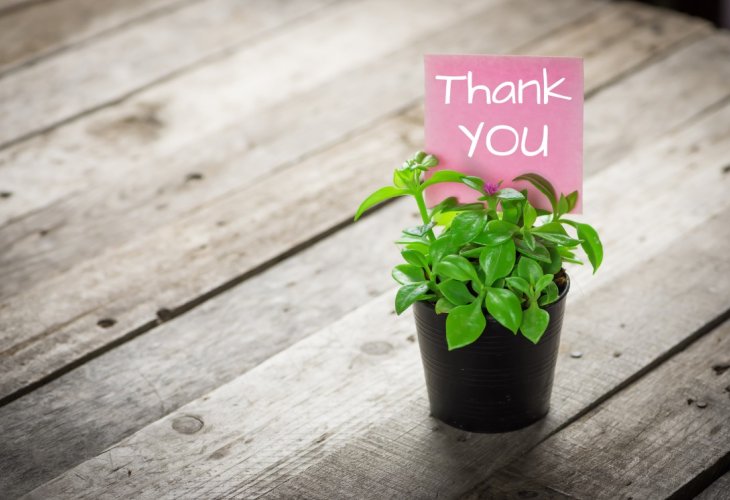Faith
The Power of Gratitude: How Focusing on What You Have Brings True Happiness
How daily thankfulness, positive perspective, and appreciation for life’s simple gifts can transform struggles into joy and lasting fulfillment
 (Photo: shutterstock)
(Photo: shutterstock)Gratitude seems to be the answer to many of life's challenges. Each of us has received incredible gifts in life, but our human tendency is to overlook them and instead obsess over what we don’t have.
Consider a married man who hasn’t yet been blessed with children. Instead of drowning in sorrow, he can reflect on the gift of having a wife who waits for him each day, loves him, and shares life with him. If he thinks of the many people have longed for years just to find a partner, he will discover joy in what he already has.
A Woman’s Struggle: “How Do I Survive This Hard Time?”
A woman in her thirties once asked me: “How do you survive such a difficult period when you can’t find your soulmate?”
I understood that she was suffering deeply. So I asked her: “What exactly is so hard for you right now?”
She answered: “All my friends are married with kids, and I am alone!”
I continued to ask her: – Do you have parents?
“Yes, wonderful and supportive ones.”
– Do you have friends?
“Yes, some are closer than others.”
– Do you have food at home?
“Yes, plenty.”
– When you want to buy clothes, can you afford them?
“Yes, thank God I work and I lack nothing.”
– Are you healthy?
“Yes, thank God.”
– Do you enjoy your job?
“Yes, I do.”
– Do you have a private room in your home?
“Yes, I do.”
I said to her: "You have loving, supportive parents, while so many people don’t. You have health, which is something countless people would pay any price for. You have food, work, money, a private room, and friends. Are you sure that this is ‘suffering’? If you learn to focus on what you have, rather than what your friends have (and you never really know how ‘good’ their lives truly are), you will find happiness.”
Learning to Say “Thank You”
One of the best ways to appreciate what we have is by getting comfortable with saying thank you for everything. Jewish tradition even teaches us to begin each morning with gratitude. As soon as we open our eyes, we say: “I thank You, living and eternal King, for returning my soul within me with compassion; great is Your faithfulness.”
Each of the morning blessings is a reminder to give thanks, for sight, for movement, for freedom, and for being alive. Before eating a piece of fruit, bread, or any meal, we say blessings of gratitude. Even when putting on new clothes, we say: “Blessed are You… who has kept us alive and brought us to this moment.” It’s all about learning to say thank you for life itself.
A person who marries late in life knows how to treasure the gift of a partner. If we adopt that perspective, then even something simple — like realizing our spouse folded our laundry, stocked the kitchen, or prepared a meal, becomes a source of love and joy.
Seeing Miracles in the Everyday
A mango is such a beautiful fruit, with its rich color, smooth texture, fragrant smell, and heavenly taste. How many times do we eat one without really noticing the details? If we reflect on the miracle of how a tiny seed rots in the soil and transforms into such sweetness, gratitude will naturally rise within us.
Rabbi Shalom Arush, in his book In Gratitude, writes at length about the power of thanking even for what seems painful. By practicing gratitude, everything eventually turns to good.
The Importance of Gratitude in Relationships
Imagine helping a close friend every single day by providing food, health care, shelter, and company. If that friend never once smiles or says “thank you,” wouldn’t you eventually stop helping? If a poor man receives just one small coin and responds with a wide smile, endless thanks, and blessings, wouldn’t you look forward to giving him more, just to see his joy?
It's no secret that gratitude multiplies blessings.
A Daily Practice of Gratitude
Every day, we can pause to say:
Thank You for eyes that see and ears that hear.
Thank You for a healthy body.
Thank You for food on the table.
Thank You for my spouse and children.
Thank You for true friends.
Thank You for the chance to live with meaning, values, and faith.
Thank You for Shabbat, for peace, and for joy.
Thank You even for small pleasures — like having a few coins to buy ice cream when we feel like it.
When gratitude becomes a habit, life itself feels full. We no longer focus on what’s missing, but on the abundance already surrounding us. That shift brings true happiness.

